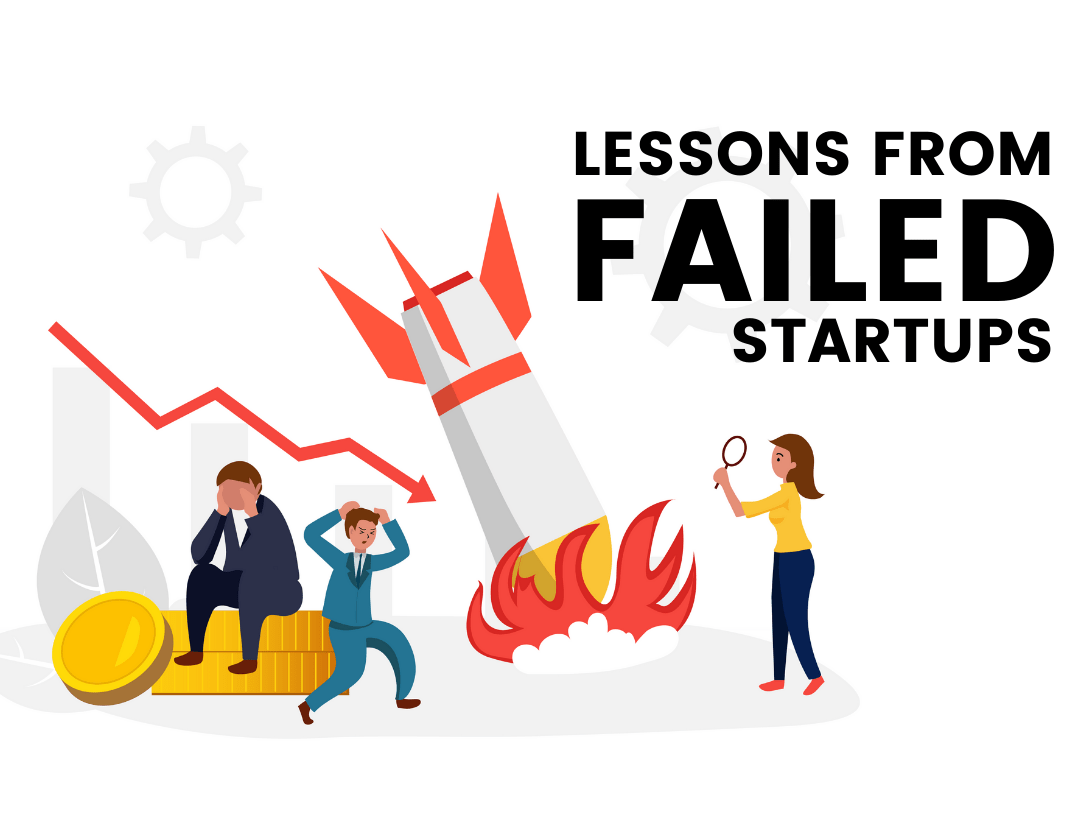There’s a lot of discussion about how entrepreneurs need to always be on the lookout for possible snags. But when it comes to taking lessons from a failing business, nothing seems to suffice. Nevertheless, learning what not to do while establishing your business is beneficial. Preparation is better than ignorance.
In this blog, we will discuss a few key takeaways.
Key Takeaways From Failed Startups
1. Seek Advice From Experts
Seeking advice is essential from the moment you decide to start your own business. Taking charge of your destiny is critical, but it’s also prudent to pause and reflect before plunging headlong into new territory.
Accountants can assist you in deciphering the financial health of your company. Lawyers can assist you in determining the optimal company structure for your venture. And others who have been in your position. They can help you learn from their experiences.
2. Make Sure Your Business Has A Big Market
Studies show that 35% of new businesses collapse since there is no demand for their product or service. Even with the finest product and staff, a business might fail due to a lack of consumer demands. A reasonable individual would find a problem and start a company to solve it.
Startups are successful because they provide a unique service or product. Making a product takes effort, therefore be sure there is an audience ready to buy your product before you start working on it.
3. Eliminate Non-Working Elements
It’s possible that you tried some ideas that didn’t work out. It’s possible you went backward because you expanded too soon. You may have gone a little overboard. To get your company back on track, it is important to cut costs and eliminate wasteful procedures.
Finding and eliminating non-working processes will help your business grow in the right direction. Additionally, you’ll have to reduce your spending. It may be difficult to swallow your pride when you realise that going backward is the only way to navigate your company forward.
4. Strike The Right Balance
The skill of balance is essential to the success of a business. You must strike a delicate balance between developing your product, establishing a viable company, acquiring finance, and finally becoming a successful entrepreneur.
Unfortunately, many businesses make the mistake of prioritising one of these factors above the other two, which results in their missing out on opportunities. Make sure you can handle all of the things that come with starting a new business. You can also think about bringing on partners that specialise in areas where you lack expertise.
5. Be Prepared For The Worst
Businesses are unpredictable, therefore you must plan for the worst. Building an emergency fund is important for your business. If your company suffers a setback, financial assistance may only serve as a band-aid.
Your strategic business model should be aided by a business plan, which will help you meet your goals and bring more customers in. Your team should also gather regularly to brainstorm fresh ideas for dealing with client complaints and other difficulties.
Conclusion
“It’s good to learn from your mistakes. It’s better to learn from other people’s mistakes.”
This Warren Buffett quotation accurately summarises this article. When it comes to unicorns, we tend to focus on the ‘success tales,’ ignoring the anecdotes of failure. Ultimately, we learn more from mistakes than successes. However, if you quit or don’t give your best, your company won’t have a chance to survive and thrive beyond your wildest imaginations!



